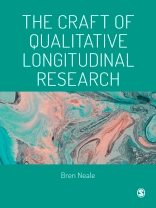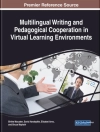Brimming with life maps, life history calendars, and extracts from transcripts and diaries, this book illustrates by example the unique principles, challenges, and applications of qualitative longitudinal research.
Synthesizing current literature on qualitative longitudinal research, it brings together sociological theory and empirically driven longitudinal studies while also highlighting a range of possible research approaches. With a consistent balance of conceptual discussions with hands-on advice, it provides readers with the foundation to adapt lessons-learned from other researchers to fit their own qualitative longitudinal studies.
Supported by research tools such as conceptual road maps, short data extracts, consent forms, and other data organization tools, this book provides everything postgraduate researchers need to transition from the classroom to the field.
Tabela de Conteúdo
Part One: Introducing Qualitative Longitudinal Research
Chapter 1: Qualitative Longitudinal Research: Mapping the field
Chapter 2: Time and the Processual Turn: Fluid Enquiry
Chapter 3. Time and the Life Course
Part Two: Crafting Qualitative Longitudinal Research
Chapter 4: Design and Sampling in Qualitative Longitudinal Research
Chapter 5: Longitudinal Ethics: Walking Alongside
Chapter 6: Generating Qualitative Longitudinal Data
Part Three: Journeys with Data
Chapter 7: Managing Qualitative Longitudinal Data: Ethics and Practicalities
Chapter 8: Working with Legacy Data
Chapter 9: Qualitative Longitudinal Analysis: Basic Strategies
Chapter 10: Cases and Themes in Qualitative Longitudinal Analysis
Chapter 11: Process and Synthesis in Qualitative Longitudinal Analysis
Conclusion
Chapter 12: Looking Back, Looking Forward
Sobre o autor
Bren Neale is Emeritus Professor of Life Course and Family Research at the University of Leeds, UK, and a Fellow of the Academy of Social Sciences. She was the director of the ESRC-funded Timescapes Study from 2007 to 2012. She has contributed to advances in Qualitative Longitudinal methods across academia, government and the voluntary sector, both in the UK and internationally, and continues to provide training and support in this methodology for new and established researchers.












